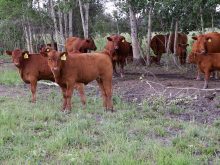Speculation is rampant that Japan will review its import rules to ease restrictions on beef from Canada and the United States.
At present Japan allows imports of North American beef only from animals younger than 20 months due to fears about BSE. The rule, imposed in 2005, has caused imports from both Canada and the U.S. to plummet and Australia to gain market share.
Now Japan is said to be considering a change to allow beef from animals younger than 30 months, possibly as early as next year.
Read Also

Trade war may create Canadian economic opportunities
Canada’s current tariff woes could open chances for long-term economic growth and a stronger Canadian economy, consultant says — It’s happened before.
Ryder Lee, manager of federal and provincial relations for the Canadian Cattlemen’s Association, said Nov. 1 that his organization is encouraged by the news but cautious.
“I’ve seen enough of these files that I don’t like to get too excited or too down in the mouth about any of the opportunities. It will be what it is, when it is,” said Lee.
Integration of the Canadian and American beef markets will likely result in Japan making the change for meat from both countries, if and when that occurs, he added.
“I’d be surprised if they’re going to change their rules around BSE for the U.S. if they don’t change for Canada as well. I’m not going to make forecasts on that.”
The number of BSE cases worldwide fell to 45 in 2010 from 37,316 in 1992, according to Japanese officials.
Lee speculated that Japan might also be considering new rules because of supply issues relating to the earthquake, tsunami and resulting nuclear disaster it experienced earlier this year.
“Maybe that terrible thing happening will be what precipitates them” to accept more beef, said Lee.
In a presentation to Alberta Beef Producers in Fort Macleod, Lee presented data indicating that Japanese acceptance of under-30-month (UTM) beef could mean $135 million for Canada.















